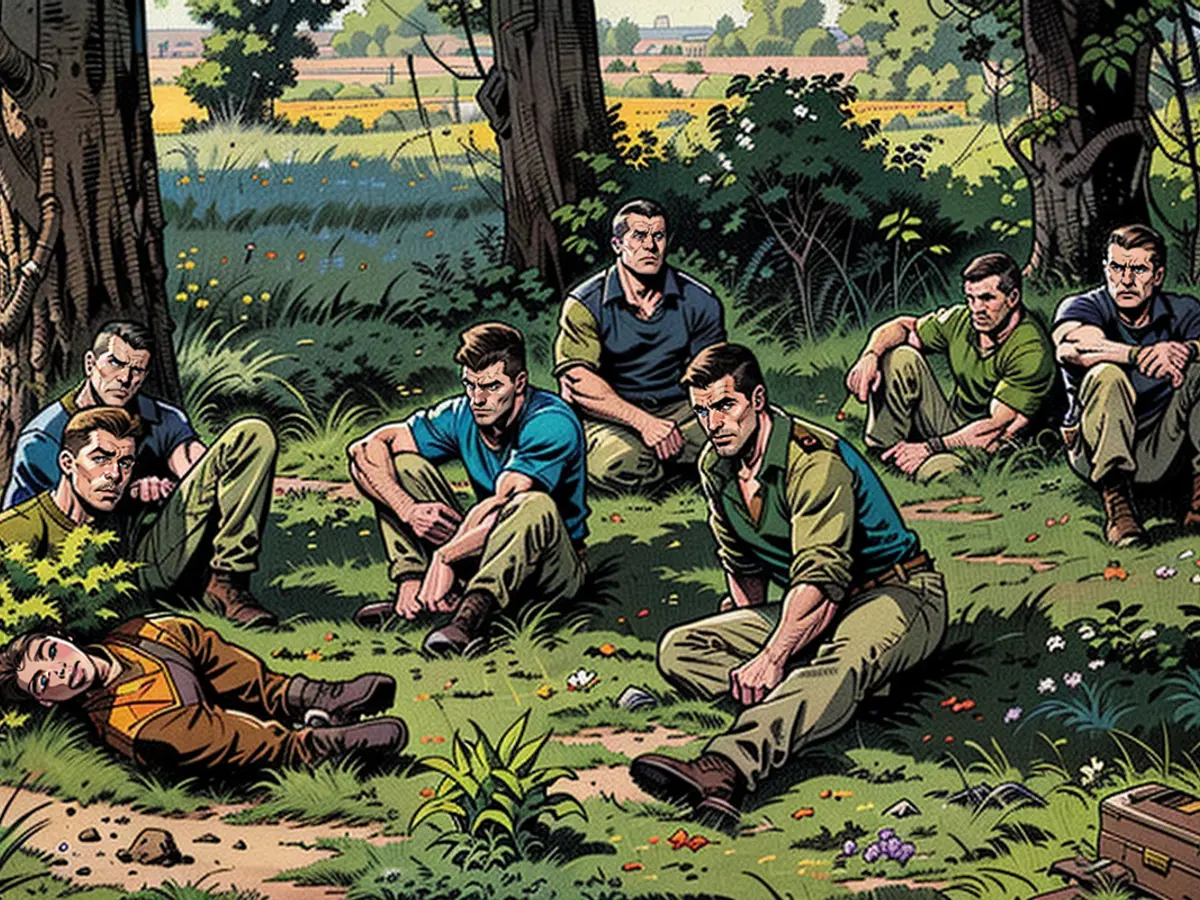The Ukrainian military expresses concerns over inadequately prepared conscripts.
Fresh recruits in the Ukrainian forces are encountering numerous difficulties. One of their main issues: some are perceived to be inadequately prepared, while others exhibit hesitance. "They spot the enemy in a firing position in the trench but fail to retaliate. That's why our soldiers are falling," laments a battalion commander.
Some refuse to engage the enemy, others grapple with fundamental combat skills or even desert their posts: such are the testimonies of commanders and comrades regarding the new Ukrainian soldier recruits. As Ukraine pushes towards the Russian region of Kursk, its troops are still experiencing setbacks on the eastern front of the country. Commanders attribute these losses mostly to the poor training of the newly enlisted soldiers, as well as Russia's dominance in the air and ammunition supply.
"Lots of people refuse to fire. They spot the enemy in a firing position in the trench but refuse to retaliate. That's why our soldiers are falling," grumbles a displeased battalion commander from the 47th Brigade. "If they don't use their weapons, they're useless." Commanders and soldiers spoke undercover to openly discuss sensitive military matters. Others only revealed their first names.
Commanders pinpoint the recent recruits, among other reasons, for the territorial setbacks near the city of Pokrovsk, a crucial logistics hub. The loss of this city would jeopardize Ukrainian defenses and draw Russia closer to its declared objective of seizing the Donetsk region. Currently, Russian forces are just ten kilometers from Pokrovsk. The situation is further complicated by the numerical superiority of Russian troops and Moscow's readiness to accept substantial losses to secure minor gains.
The new Ukrainian recruits bear little resemblance to the seasoned fighters who volunteered en masse for military service in the first year of the conflict. Commanders and soldiers from four defense brigades in the Pokrovsk area complain that these new troops are deficient in basic training. Some even hint at organizing their own mobilization campaigns in the future to recruit better-trained forces.
Logistical obstacles in training
In May, the government implemented a contentious mobilization law. Since then, it's estimated that tens of thousands of fighters are being drafted every month. The need is the greatest in the infantry. However, there are logistical hurdles in training, outfitting, and remunerating such a large number of newcomers.
However, some military analysts contend that the new recruits are unwarrantedly blamed for the loss of towns like Prohres and Otscheretyne near Pokrovsk. Viktor Kewljuk from the think tank Center for Defense Strategies in Ukraine emphasizes that the training of the newcomers is satisfactory. Brigade commanders appear to be shifting responsibility for their own tactical failures onto the new recruits.
The sudden Ukrainian foray into Russia initially stirred up hopes that the Kremlin would have to redistribute its military resources in response. To date, this has not materialized. After two weeks, the Ukrainian advance has also slowed down. Recently, the armed forces have only managed limited successes - a potential indication that Moscow is countering more effectively.
Commanders in the east report that the fighting there has intensified since the invasion. On Monday, local authorities urged the nearly 53,000 residents of Pokrovsk to vacate their homes within two weeks. In the adjacent city of Myrnohrad, closer to Russian positions, residents were given only a few days to evacuate.
The capture of Pokrovsk would pose a threat to Ukrainian supply lines to the Donetsk region and ease Russia's incursion into the eastern cities of Slovyansk and Kostiantynivka. It would also mark Moscow's first significant strategic triumph in months. However, the offensive is accompanied by substantial losses for Russia: According to a British Ministry of Defense estimate, around 70,000 Russian soldiers have been killed in recent months.
The new recruits' struggles in combat are cited as a significant factor in Ukraine's continued challenges on the eastern front, with some refusing to engage the enemy and others lacking basic combat skills. These issues have been linked to the rapid mobilization and training of tens of thousands of new fighters following the implementation of the contentious mobilization law.
In light of the ongoing 'Wars and Conflicts' between Ukraine and Russia, the inadequate preparedness and hesitation displayed by some Ukrainian forces have contributed to setbacks and territorial losses, such as the potential capture of Pokrovsk, which could pose a threat to Ukrainian defenses and supply lines.








